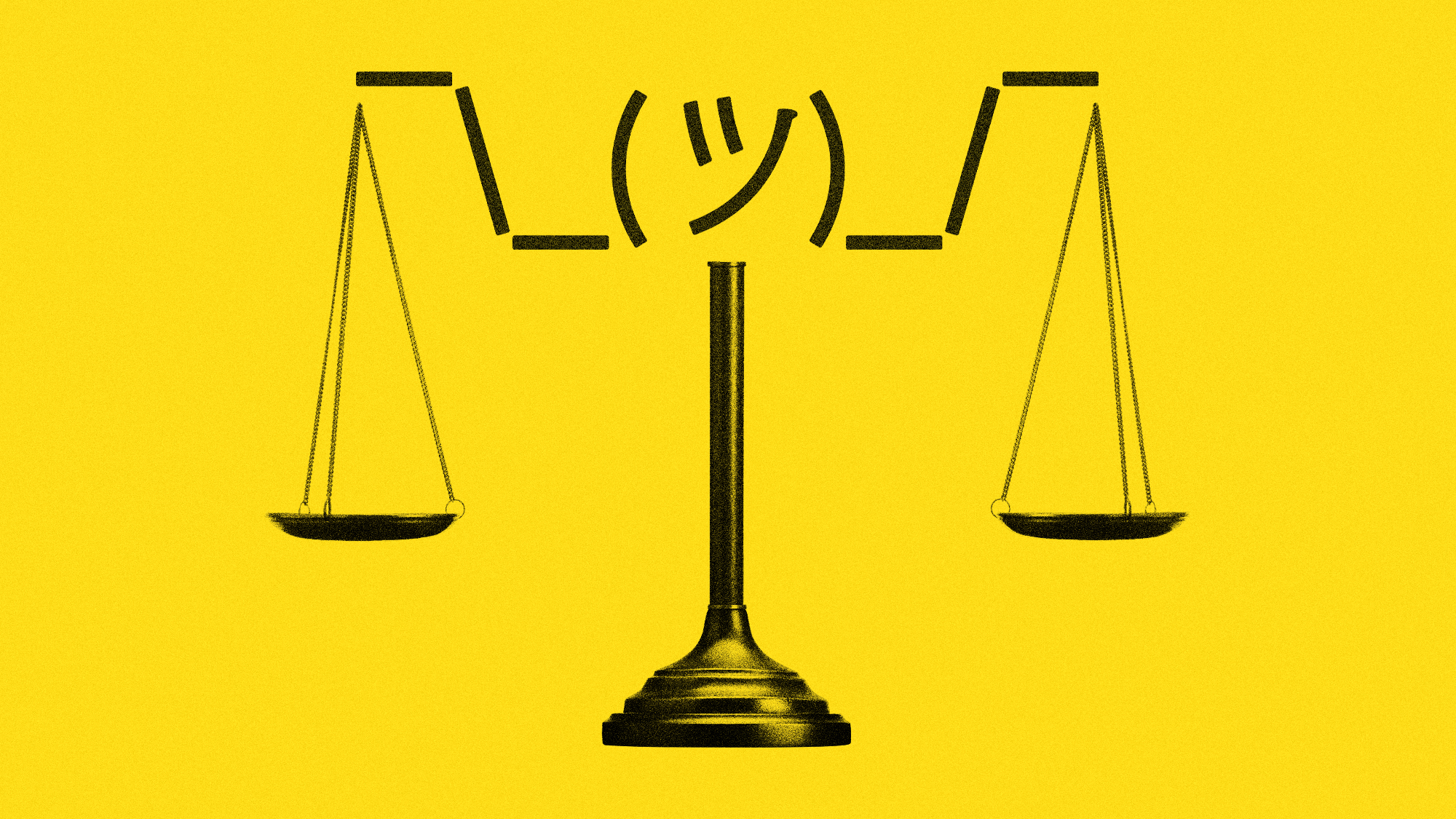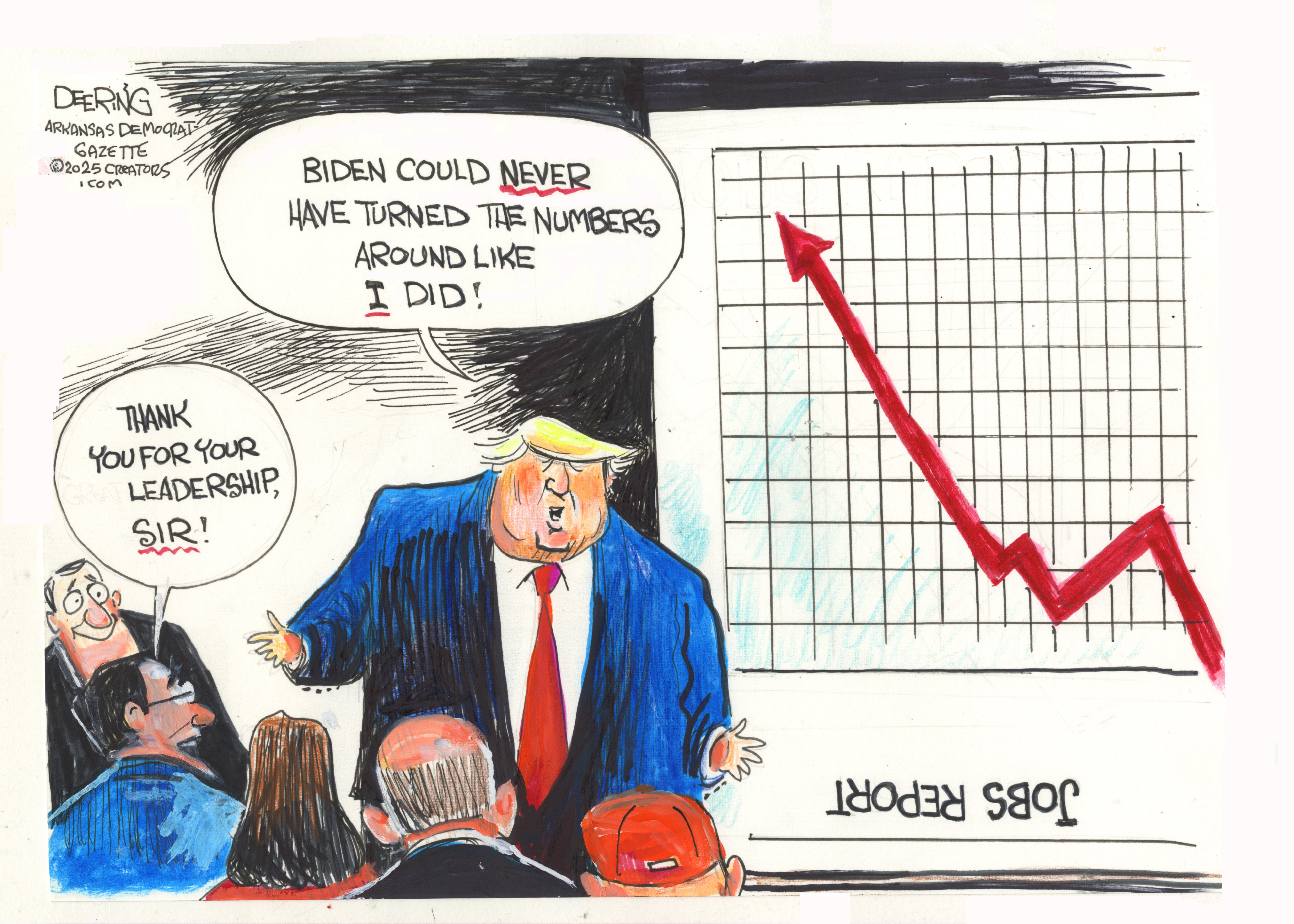Why the Fed shouldn't even think about raising interest rates
There's a deep rot in the economy — and lowering inflation isn't the answer


This past Friday brought yet another monthly jobs report from the Bureau of Labor Statistics, along with a now-perennial problem for economic journalists: It was good news, but good news in the same way a cup of gasoline is good news if you're running on empty. It's helpful, but there better be a gas station just around the corner.
Creating 280,000 jobs a month is enough to keep up with population growth, plus a little extra. That "plus a little extra" is extremely important, since we're not just trying to employ people entering the economy for the first time; we're trying to re-employ everyone who lost jobs after the 2008 nose-dive. The number of Americans who are either employed part-time but want to work full-time, or who have given up on looking for work entirely, is still way higher than it was before the collapse. We're trying to bring all those people back in.
And 280,000 is on the higher side of how we've done since the recession — the average for the last three months was just 207,000 jobs, and 236,000 jobs for the last six months. At those rates, the economy won't get back to 2007's health until April of 2017 or December of 2016, respectively.
The Week
Escape your echo chamber. Get the facts behind the news, plus analysis from multiple perspectives.

Sign up for The Week's Free Newsletters
From our morning news briefing to a weekly Good News Newsletter, get the best of The Week delivered directly to your inbox.
From our morning news briefing to a weekly Good News Newsletter, get the best of The Week delivered directly to your inbox.
One metric that's buried a ways down in the BLS report, but that does a good job of summing up the interaction between all those forces, is average hourly earnings of all private employees.
Think about it this way: As long as we're re-employing people who simply haven’t been able to find work, wages don't need to go up. Everyone would like higher incomes. But what a person without a job needs, and what they'll take, is any income, period. So as long as employers can get away with hiring new people without having to raise labor costs, they’re going to do it.
But to stick with our car analogy, if the economy keeps accelerating until it's running hot and fast enough to employ everyone who wants and needs a job, then what happens? The only way for employers to keep attracting workers is to outbid other employers. So wage growth starts going up. This state of affairs is what economists generally refer to as full employment.
This gets us back to that "good news, but only compared to a terrible baseline" point. Average hourly earnings rose 8 cents in May to hit $24.96 — a 2.3 percent increase over where it was a year ago. And it's been bouncing around at 2 percent ever since the 2008 plunge, from a previous peak around 3.5 percent.
A free daily email with the biggest news stories of the day – and the best features from TheWeek.com
[[{"type":"media","view_mode":"media_large","fid":"119558","attributes":{"alt":"","class":"media-image","height":"399","typeof":"foaf:Image","width":"600"}}]]
There's still basically zero evidence of full employment or anything close to it, 5.5 percent unemployment rate or not. (Remember, the unemployment rate is who doesn’t have a job out of the people actually looking for work.)
But it gets worse.
Inequality comes in three flavors. There's inequality within wages — think of the split between upper class professionals and managers on the one hand, and blue-collar workers and such on the other — which has been growing for a few decades. Then there's inequality within the income that goes to owners of capital — that's even more grossly skewed towards the top.
Finally, there's how much of all income goes to owners of capital versus workers. The economy only generates so much wealth at a given time, so workers and owners are in a never-ending tug-of-war over who gets what cut, both at the level of the individual firm and at the level of the economy as a whole. All three versions factor into inequality as a whole, but the split between capital and labor is in some ways the most fundamental. (Especially since the highest wage earners also tend to be the owners of capital.) And the numbers show that the workers' share has dropped noticeably in at least the last decade, and maybe even for the last two decades, after remaining steady during mid-century. And it’s really fallen off the cliff since 2008.
[[{"type":"media","view_mode":"media_large","fid":"119563","attributes":{"alt":"","class":"media-image","height":"399","typeof":"foaf:Image","width":"600"}}]]
What does this have to do with average hourly wage growth? To keep workers' share of overall economic production steady, wages need to be growing as fast as inflation combined with the rate of growth in the real productivity workers are adding to the economy. If you guesstimate a 1.5 percent rate of growth in productivity for the immediate future, which is pretty reasonable, along with the Federal Reserve's official 2 percent inflation target, then you need sustained wage growth of at least 3.5 percent. We're nowhere close to that.
But what's especially creepy is that wage growth has gotten above just inflation, never mind productivity growth, only intermittently since 1980.
[[{"type":"media","view_mode":"media_large","fid":"119564","attributes":{"alt":"","class":"media-image","height":"399","typeof":"foaf:Image","width":"600"}}]]
The blue line is wage growth for all production and non-supervisory employees. The red line is the same as the first graph above, which is for all employees. Data for the second only goes back to 2006, but I've included both to judge whether they're good proxies for each other. The green line is inflation.
Looking at that graph, a few things should be obvious. One, the Great Moderation era of low inflation has been a mess for the everyday worker, as other trends like jobless recoveries since 1980 and the fall-off of even prime age workers from the labor force can attest.
And two, even during the "stagflation" of the 1970s, we didn't get high inflation without high wage growth. That's because both trends are driven by the same foundational force: Workers gain enough bargaining power to place pressure on owners, which raises wages, which puts pressure on prices, which raises inflation.
The economics blogger Steve Randy Waldman has made a pretty convincing case that the run-up in wage growth and inflation in the 1970s was a one-off fluke, driven by the entrance of women into the labor force. The economy simply couldn't absorb the influx of new workers fast enough, so the only thing that could happen was for wages and prices to spike.
All of which boils down to yet another bit of evidence that inflation is no threat at all, and the economy is nowhere near healed, so the Federal Reserve should not even be talking about rising interest rates. In fact, they should be willing to tolerate inflation considerably higher than 2 percent for a certain amount of time, and maybe permanently.
Because at this point, we're not just trying to repair the damage from the Great Recession. We're trying to repair a much deeper rot in the economy that's been going on for decades.
Jeff Spross was the economics and business correspondent at TheWeek.com. He was previously a reporter at ThinkProgress.
-
 Hostile architecture is 'hostile — to everybody'
Hostile architecture is 'hostile — to everybody'Instant Opinion Opinion, comment and editorials of the day
-
 Why are federal judges criticizing SCOTUS?
Why are federal judges criticizing SCOTUS?Today's Big Question Supreme Court issues Trump case rulings 'with little explanation'
-
 September 8 editorial cartoons
September 8 editorial cartoonsCartoons Monday’s political cartoons include Donald Trump booed at the U.S. Open, a hidden message in the Epstein Files and a new bird in Florida
